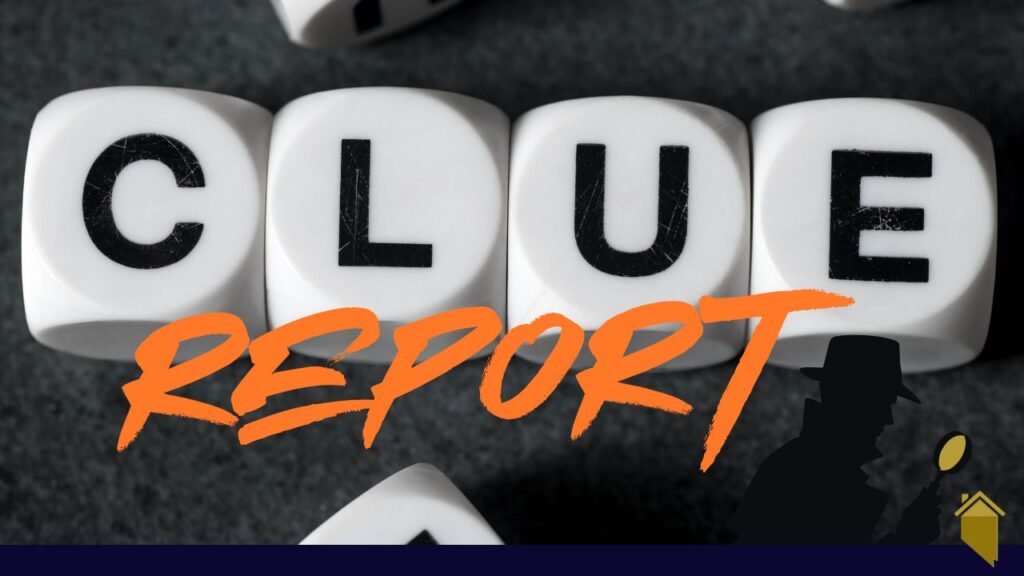What is C.L.U.E.?
C.L.U.E. stands for “Comprehensive Loss Underwriting Exchange,” a claims history database that allows insurance companies to access detailed claims information when assessing or pricing an insurance policy. As C.L.U.E. reports become more integral in real estate transactions, home inspectors will find their clients increasingly interested in understanding how these reports might impact their purchasing decisions.
Founded in 1992 and managed by ChoicePoint, a data aggregation firm, C.L.U.E. collects and maintains data from approximately 600 homeowners’ insurance providers—roughly 90% of all insurers. While most insurers do not consult C.L.U.E. reports during policy renewals (since they already have loss history data), many home buyers now require a C.L.U.E. report as part of the property transaction process.
What’s Included in a C.L.U.E. Report?
A C.L.U.E. report compiles insurance claims data submitted by insurers. It includes key policy details such as the date of the loss, the type of loss, amounts paid out, and a description of the property involved. Only claims history from the past five years is stored in the database, ensuring the information is relatively current. It’s important to note that C.L.U.E. reports do not include personal data like credit reports, civil litigation records, criminal histories, or legal judgments.

How Can C.L.U.E. Reports Help Home Buyers?
C.L.U.E. reports provide critical information that can alert potential home buyers to past issues like water damage, mold, or other serious problems that could affect their ability to secure insurance. Without access to this report, buyers could face significant challenges, as they may wrongly assume they’ll be able to obtain homeowner’s insurance for their new property.
Imagine this scenario: A property is sold, the buyer takes ownership, and the real estate agent is paid. However, a few weeks later, the buyer receives notice from their insurer that the policy is being canceled due to a previous claim. In many mortgage agreements, the property must remain insured. If the buyer cannot secure coverage elsewhere, they may have to pay higher insurance premiums imposed by the lender, or worse, face foreclosure. Unfortunately, these situations often lead to lawsuits—buyers may sue the seller for not disclosing past damage, or even hold the home inspector and real estate agent accountable for failing to advise the buyer to obtain a C.L.U.E. report. A simple review of a C.L.U.E. report could have prevented this costly and stressful situation.
Keep in mind, C.L.U.E. reports cannot be requested for homes that you are simply interested in purchasing. Only the current homeowner, their insurer, or the mortgage lender can request these reports. However, you can ask the seller to obtain a C.L.U.E. report for your review during the transaction process.
What’s a Home Inspectors Role?
During a home inspection, the inspector’s main job is to uncover any hidden issues with the property that could make it less desirable to a potential buyer. Traditionally, this involves identifying current defects that could compromise safety or function. However, buyers should also be aware of past problems that might present challenges down the road, particularly those that could complicate insurance coverage.
If the inspector comes across evidence of significant damage that has been repaired—such as water damage—the buyer should request the seller to provide a C.L.U.E. report if one has not already been obtained. For instance, a home that had flooding four years ago may be deemed uninsurable under a new insurance policy. Even if no such damage is observed, it’s a good practice for the inspector to bring up the possibility of obtaining a C.L.U.E. report for the buyer’s peace of mind. Inspect LV does this by including a link to Due Diligence is More Than Just a Home Inspection in our Realistic Expectations email that all of our clients receive shortly after scheduling their inspection with us.
How Can You Obtain a C.L.U.E. Report?
You may be able to obtain this report from your home insurance provider. Some may provide it for free while others may charge a nominal fee. LexisNexis provides one free copy of your C.L.U.E. report annually. For more information, please visit consumerfinance.gov
Conclusion
C.L.U.E. reports are becoming an increasingly important part of the real estate process. As these reports provide valuable information about a property’s past insurance claims, home inspectors should be prepared to inform clients about how these reports can impact future insurance coverage and overall homeownership.

